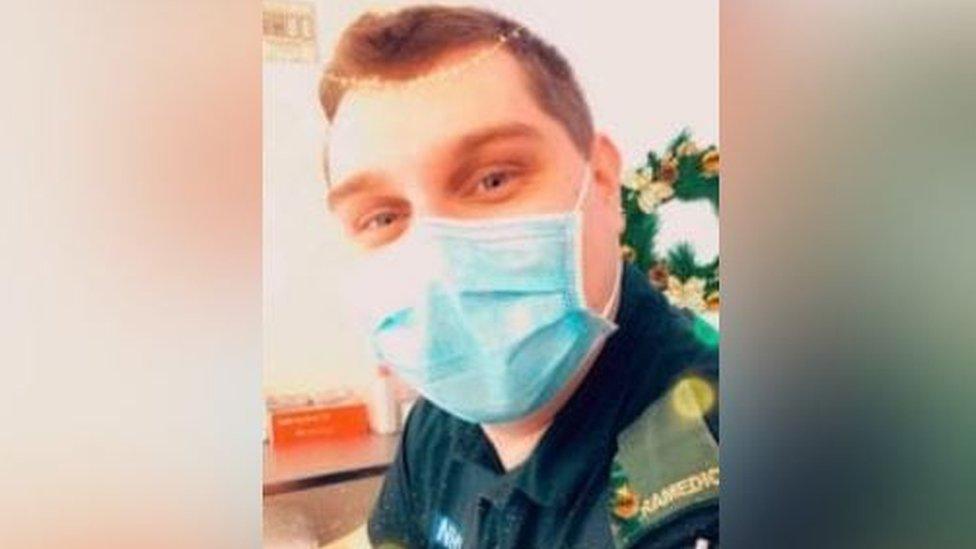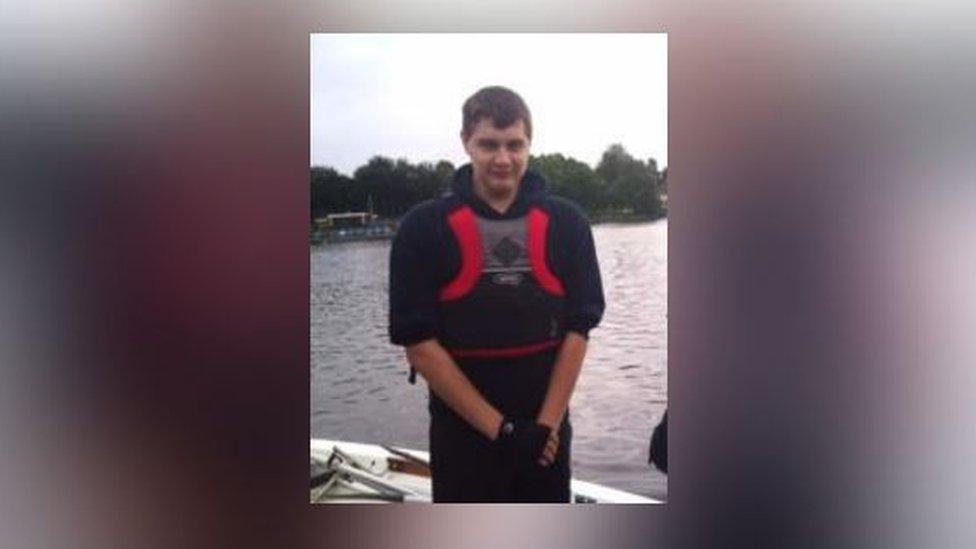Vow to learn from stressed paramedic's death
- Published

A coroner said he could not be sure paramedic David Cullum intended to take his own life
A stressed paramedic's "self-inflicted" death followed fears he would lose his job, an inquest heard.
On the day before David Cullum died in May, he had a disagreement about patient care with a manager.
That night he put two pages of a care plan on a closed staff Facebook page, then swiftly removed it, and feared being disciplined for breaching confidentiality.
West Midlands Ambulance Service (WMAS) said there were lessons from his loss.
Mr Cullum, from Redditch, Worcestershire, had previously received a written warning from his employer.
Returning a narrative verdict at Worcestershire Coroner's Court, Assistant Coroner Nicholas Lane said Mr Cullum's death was self-inflicted, but he could not be sure the paramedic had intended to take his own life on 14 May.
Sources have told the BBC the disagreement with an operations manager related to the call-out of a second crew to assist with moving a patient. Mr Cullum's colleague had insisted the crew leave and the patient make their own way down some stairs, the BBC understands.
The following day, according to a WMAS report that was the basis of inquest proceedings, Mr Cullum had a conversation with a supervisor, a different colleague, at 12:42 BST. There was a second call at 13.31 BST which the supervisor missed but attempted to return.
Two minutes later, Mr Cullum phoned 999. The call was categorised as a level three. At 13.43 BST he phoned again, by which time the call should have been upgraded to the more serious level two because his voice was slurred, the court heard.
According to WMAS, it resulted in paramedics arriving four to six minutes later than they should have.
The trust's own investigation found resuscitation should have been attempted, but it was the professional judgment of the paramedics on scene that Mr Cullum was deceased.
Mr Lane said: "There is no evidence about what would have been the outcome had any further care been given."

WMAS said lessons were being learned from paramedics' deaths
The court, which sat without witnesses, heard Mr Cullum had conveyed detail over his medical emergency to call handlers. Mr Lane said his "distressed" actions were a potential cry for help, with what happened at work a possible factor.
The court also heard there was no professional wrongdoing on the part of the operations manager and the assessment of the patient about whose care Mr Cullum had been concerned.
'Pressures of the job'
A Freedom of investigation request by the BBC revealed there were eight WMAS staff who had taken their life in the past four years.
WMAS said: "Any death is one too many. There have been fewer suicides since [the] pandemic, which has arguably been far more stressful, certainly the last 12 months.
"Much learning has taken place from the deaths of our colleagues. Mental health awareness training and additional support services have been embedded directly as a result."
As to the issue of the incorrect classification of Mr Cullum's call, WMAS said it had been "addressed within the control room and the individual staff".
It added with reference to the resuscitation matter: "At the time, the crew genuinely believed that the patient met the requirements to recognise life as extinct. However, [after] in-depth investigations and [a] period of reflection by the crew, they accept that this was not the correct decision."
The events, a spokesperson continued, identified "learning" that would "allow the organisation to learn from such tragic cases so that care can be improved going forwards and other staff can learn from such examples".
Mr Cullum's mother, Pippa Cullum, who did not attend the inquest, said: "We just hope that some good will come out of this tragedy and that his legacy will be to highlight the pressures of the job and promote better welfare, support and understanding for these amazing people."

Follow BBC West Midlands on Facebook, external, Twitter, external and Instagram, external. Send your story ideas to: newsonline.westmidlands@bbc.co.uk, external